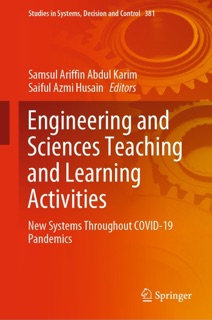This book comes from genuine research from various universities in Asia, such as in South East Asia and India. Since COVID-19 pandemic is spreading all over the world, most schools and institutions of higher learning have opted online-based learning for their teaching and learning (T&L) activities. Previously, the common practices in T&L are face to face (F2F). Therefore, online T&L is a new normal not just for the students but also for the instructors as well as the parents. In this book, different online teaching methods via technology-supported teaching have been implemented, and at the end of the lesson, based on the feedback from students on these online technology-supported teaching tools, most educators found that there are positive responses from majority of students, in terms of their learning, attitudes, thinking and decision-making process, apart from the challenges faced by the students in the beginning, with regards to the new approaches and methodology used by their teachers during online teaching. There are eight contributed chapters in this book covering secondary school-level curriculum up to higher institutional-level curriculum that forming a new system of T&L for post-COVID-19 pandemic. The topics under consideration include active learning (AL) and cooperative learning (CL) for T&L, task-based instruction (TBI), transition students’ adaptability to post-COVID-19, creative and innovative teaching methods for secondary school-level mathematics, project-based learning (PPBL) for geophysics and impact of Socratic method and SOLO taxonomy. This book is suitable for postgraduate students, teachers, instructor, educational researchers, as well as policy makers in education and other scientists who are dedicated in teaching and educate students.



















